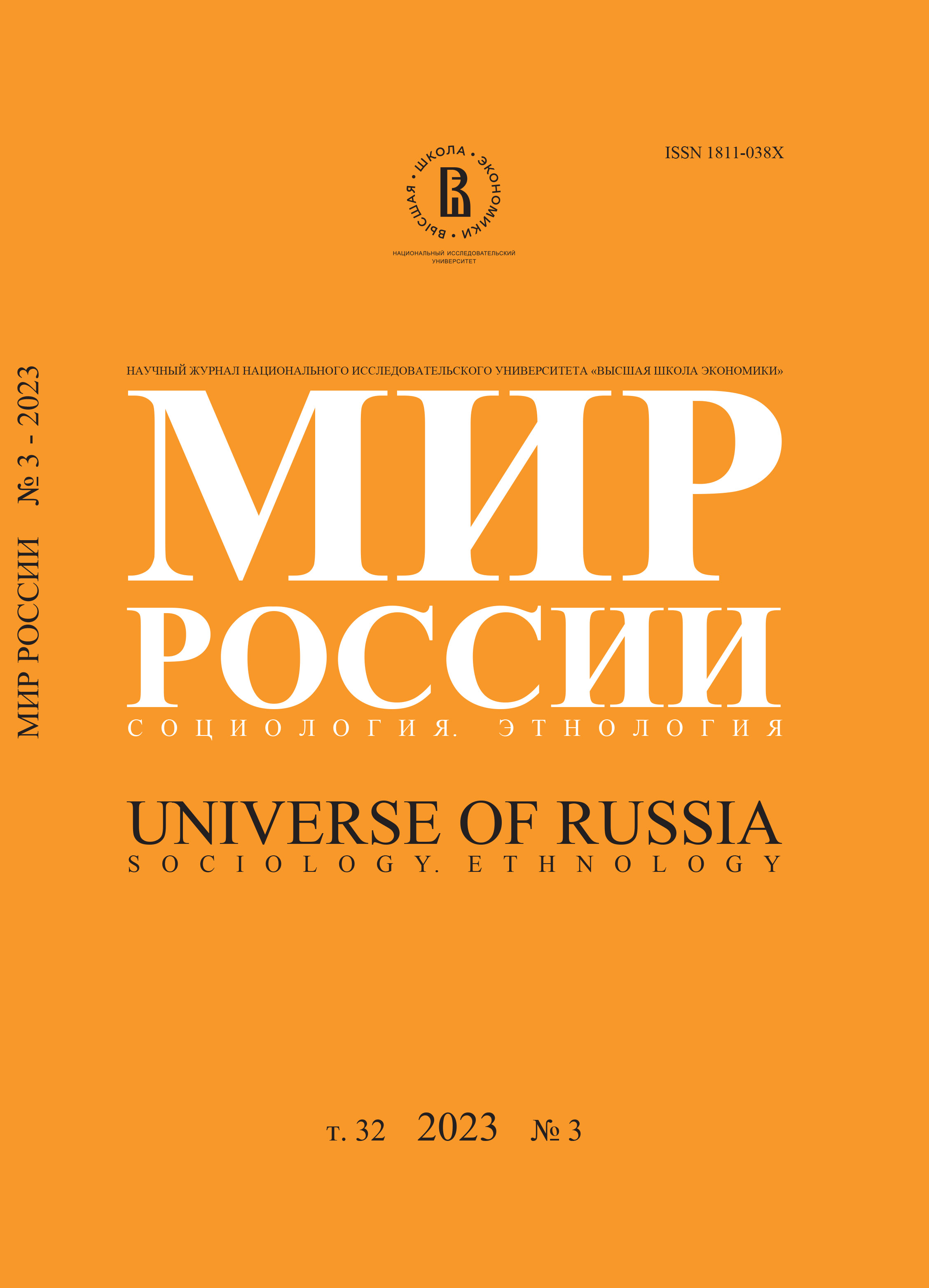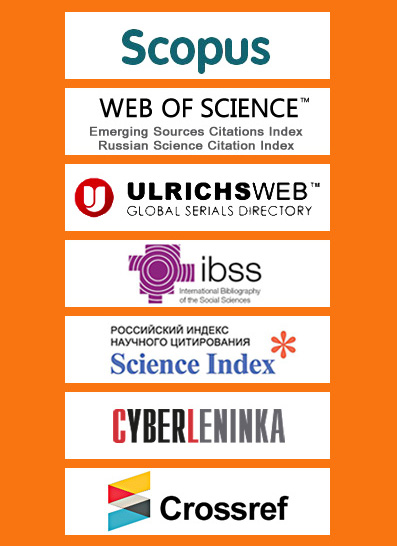Связь религиозности и ценностно-нормативных представлений о браке: взгляд российской брачной молодежи
Аннотация
Изучение связи религиозности и ценностно-нормативной сферы общества сегодня привлекает к себе внимание многих исследователей, а ценностно-нормативные понятия о браке – это та сфера общества, в которой связь с религиозностью индивидов представляет особый интерес для нашей страны. С одной стороны, предполагается, что индивидуальная религиозность в России должна быть связана с более традиционными представлениями людей о браке, поскольку в религиозном учении Церкви (в случае нашей страны наиболее распространенной – Православной) содержатся четкие нормы брака, которые предположительно усваивают верующие. Некоторые данные опросов подтверждают эту связь. С другой стороны, на деле это предположение о связи религиозности и представлений о браке не находит подтверждения. Так, несмотря на то, что сегодня число россиян, относящих себя к религиозным православным людям, составляет 60–70%, в России наблюдается перемена ценностно-нормативных представлений о браке, которые отныне все менее согласуются с идеалами христианства. Так, сожительства становятся легитимными, растет терпимость к разводам, а их уровень достигает одного из самых высоких в мире. В данной статье изучается, как ценностно-нормативные представления о браке ассоциированы с религиозностью россиян, причем последняя измеряется разными способами. Эмпирическая база исследования – 1000 россиян 18–40 лет, состоящих в зарегистрированном браке; в ней применялся расчет коэффициентов ранговой корреляции Спирмена. Было выявлено, что в целом более религиозные люди скорее разделяют ценности нормы брака, предлагаемые Церковью. Однако парадоксальность заключается в том, что, хотя интимная близость вне брака осуждается более религиозными индивидами, одобрение сожительства до брака никак не связано с религиозностью, при этом обе практики в Православной церкви одинаково порицаются. В своей работе мы нашли подтверждение предыдущим исследованиям: разрешение проблемы почти отсутствующей связи между религиозностью и представлениями о браке кроется в способе измерения этой религиозности. Именно индексы с социальными компонентами, в отличие от индивидуальных шкал, оказались способны выявить связь между религиозностью и различными ценностями и нормами (в нашем случае – брака), отсутствие которой ученые обычно констатируют для большинства постсоциалистических стран, переживших форсированную секуляризацию. Наша работа позволяет предположить, что нормы и ценности брака скорее связаны с религиозной средой, чем с индивидуальной религиозностью, и мы можем говорить о наличии православной экологии выбора.






